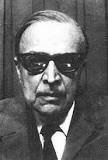One must be prepared to traverse vast intellectual landscapes to explore the confluence of Oswald Spengler's cyclical theory of culture and Alexandre Kojève's notion of authority, especially in the context of American neoconservatism. While hailing from different backgrounds and periods, both thinkers have lasting impacts on how we perceive the world and history. The American neo-conservative movement, marked by its robust advocacy of American global leadership and the propagation of liberal democratic values, can be viewed through the prism of these philosophers.
In his magnum opus "The Decline of the West," Spengler propounded that civilizations move through predictable cycles: from a spring of cultural birth to a winter of decline and eventual death. Each civilization, he argued, has its own "soul" or driving essence that differentiates its arc from others.
According to Spengler, Western civilization (encompassing Europe and, by extension, America) was in its winter phase: the end of a grand cycle marked by materialism, a decline in art, and an emphasis on the intellect over spirituality. The implications of this theory on contemporary events are vast, and some may argue that it provides a pessimistic outlook.
Kojève, a Russian-born French philosopher, was a profound interpreter of Hegel. His readings of the "Phenomenology of Spirit"(Consciousness of Spirit) in interwar Paris have left an indelible mark on intellectual circles. At the heart of Kojève's understanding is the "end of history," the idea that history moves towards an ultimate form of society where all contradictions are resolved and universal recognition is achieved.
Authority, for Kojève, is rooted in the mutual recognition of individuals. The master-slave dialectic, where one party seeks recognition but the other remains subjugated, eventually leads to mutual respect and recognition becoming the dominant mode of interaction. This idea finds resonance with the democratic principle of equal recognition under the law.
While Kojève never lived to see the rise of American neoconservatism, his ideas influenced several thinkers, notably Francis Fukuyama. Fukuyama's "The End of History and the Last Man" argues that liberal democracy may represent the endpoint of mankind's ideological evolution, a nod to Kojève's end of history. Mankind is well-housed, well-fed, and materially satisfied, and the end of time or history has arrived complete with a universal income.
Neoconservatives latched onto this idea, promoting American leadership to guide the world toward this "endpoint." The belief that America must propagate its values, often by force if necessary, can be seen as an extrapolation of Kojève's thought: to hasten the world towards mutual recognition through adopting democratic institutions.
Given Spengler's belief that the West is in its winter phase, one might wonder how this squares with Kojève's optimistic vision. Suppose Spengler were to look at contemporary America and Europe through a Kojèvean lens. In that case, he might argue that the move towards mutual recognition and the "end of history" is symptomatic of a civilization in its final stages. The emphasis on material comfort, the decline of traditional forms, and the stress on individual rights over collective duty could be signs of a culture approaching its end.
The interplay of Spengler's cycles and Kojève's authority provides a rich tapestry to understand the currents of contemporary Western politics, notably the neoconservative movement in America. While both philosophers offer differing views on the trajectory of Western civilization, their ideas have shaped, and continue to influence, the ways we think about the world. The challenge for the present generation is to decide which vision, or perhaps an amalgamation of both, will guide us into the future.















0 comments:
Post a Comment